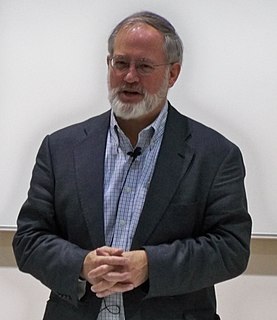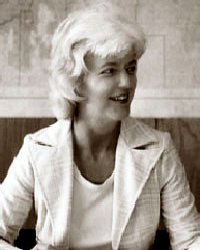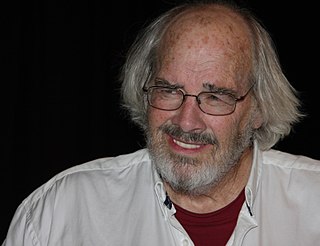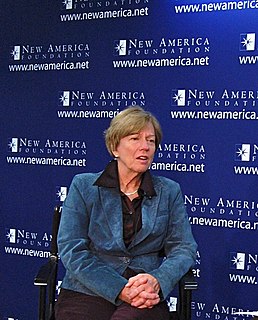Top 647 Genes Quotes & Sayings
Explore popular Genes quotes.
Last updated on April 13, 2025.
And if you listen to Irish music, they say that kilts came from the middle east. So really I'm an Arab. If you listen to the way someone like Sinead O'Connor sang. It could be Muslim. You know that angst that sort of ****. That wail. I think it's in our genes. I think certain stuff is in our genes, like nobody can dance like a black guy. It's in their genes. So we don't have oil, but we have poetry.
Yes, genes are important for understanding our behavior. Incredibly important - after all, they code for every protein pertinent to brain function, endocrinology, etc., etc. But the regulation of genes is often more interesting than the genes themselves, and it's the environment that regulates genes.
The implication is that this basic idea we have that we are controlled by our genes is false. It's an idea that turns us into victims. I'm saying we are the creators of our situation. The genes are merely the blueprints. We are the contractors, and we can adjust those blueprints. And we can even rewrite them.
Epigenetics doesn't change the genetic code, it changes how that's read. Perfectly normal genes can result in cancer or death. Vice-versa, in the right environment, mutant genes won't be expressed. Genes are equivalent to blueprints; epigenetics is the contractor. They change the assembly, the structure.
We can now determine, easily and relatively cheaply, the detailed chemical architecture of genes ; and we can trace the products of these genes ( enzymes and proteins ) as they influence the course of embryology . In so doing we have made the astounding discovery that all complex animal phyla - arthropods and vertebrates in particular - have retained, despite their half-billion years of evolutionary independence, an extensive set of common genetic blueprints for building bodies.
The study of how substances alter gene expression is part of the field of epigenetics. Some chemical exposures appear to turn on and turn off genes in ways that disregulate cell growth and predispose for cancer. From this perspective, our genes are less the command-and-control masters of our cells and more like the keys of piano, with the environment as the hands of the pianist.
Complex organisms cannot be construed as the sum of their genes, nor do genes alone build particular items of anatomy or behavior by themselves. Most genes influence several aspects of anatomy and behavior as they operate through complex interactions with other genes and their products, and with environmental factors both within and outside the developing organism. We fall into a deep error, not just a harmful oversimplification, when we speak of genes "for" particular items of anatomy or behavior.
Individuals are not stable things, they are fleeting. Chromosomes too are shuffled into oblivion, like hands of cards soon after they are dealt. But the cards themselves survive the shuffling. The cards are the genes. The genes are not destroyed by crossing-over, they merely change partners and march on. Of course they march on. That is their business. They are the replicators and we are their survival machines. When we have served our purpose we are cast aside. But genes are denizens of geological time: genes are forever.
We've just done a five-day retreat at the Chopra centre and people who went to the meditation retreat saw their anti-ageing enzyme increase by 40 per cent. We looked at their 23,000 genes and the self-healing genes were up regulated and all the genes related to heart disease, cancer and inflammatory diseases, diabetes, they all went down within five days.
Natural species are the library from which genetic engineers can work. Genetic engineers don't make new genes, they rearrange existing ones. Speaking as World Wildlife Fund Executive Vice President, stating the need to conserve biodiversity, even plants and animals having no immediate use, as a unique repository of genes for possible future biogengineering applications.
Of course our genes will make some capacities very much easier to learn than others, and of course our genes themselves are not learned. But the point remains that genes themselves are not cognitive capacities, and that anything worth calling a cognitive capacity will depend to some degree on learning and so not be innate.
Human beings do not carry civilization in their genes. All that we do carry in our genes are certain capacities- the capacity to learn to walk upright, to use our brains, to speak, to relate to our fellow men, to construct and use tools, to explore the universe, and to express that exploration in religion, in art, in science, in philosophy.
When you're coming into a company and, you know, have to do a transformation, what you really want to do is look at the company and say, 'Okay, here are the parts that the company does well. How do we get those genes to hyper-express? The genes that are getting in the way, how do you turn those off?'
Cheetah genes cooperate with cheetah genes but not with camel genes, and vice versa. This is not because cheetah genes, even in the most poetic sense, see any virtue in the preservation of the cheetah species. They are not working to save the cheetah from extinction like some molecular World Wildlife Fund.
It's a very complex network of genes making products which go into the nucleus and turn on other genes. And, in fact, you find a continuing network of processes going on in a very complex way by which genes are subject to these continual adjustments, as you might say - the computer programmer deciding which genes ultimately will work.
While nobody has identified any gene for religion, there are certainly some candidate genes that may influence human personality and confer a tendency to religious feelings. Some of the genes likely to be involved are those which control levels of different chemicals called neurotransmitters in the brain.
There's this very interesting and complicated connection between our environment and our genes and the traits that come out of the environment plus genes. And there's huge potential. I mean we see amazing abilities. Marie Curie, Albert Einstein. All sorts of arts, and literature and so forth. These are not typical traits of everybody on earth.
There is no gene "for" such unambiguous bits of morphology as your left kneecap or your fingernail. [...] Hundreds of genes contribute to the building of most body parts and their action is channeled through a kaleidoscopic series of environmental influences: embryonic and postnatal, internal and external. Parts are not translated genes, and selection doesn't even work directly on parts.










































